
These days, bulk buying has become the norm, especially with supermarkets offering tempting discounts on 25kg rice bags. While it might seem economical, storing large quantities of rice for long periods can lead to unexpected problems. One of the most common and often overlooked issues is the appearance of strange clumps in the rice.
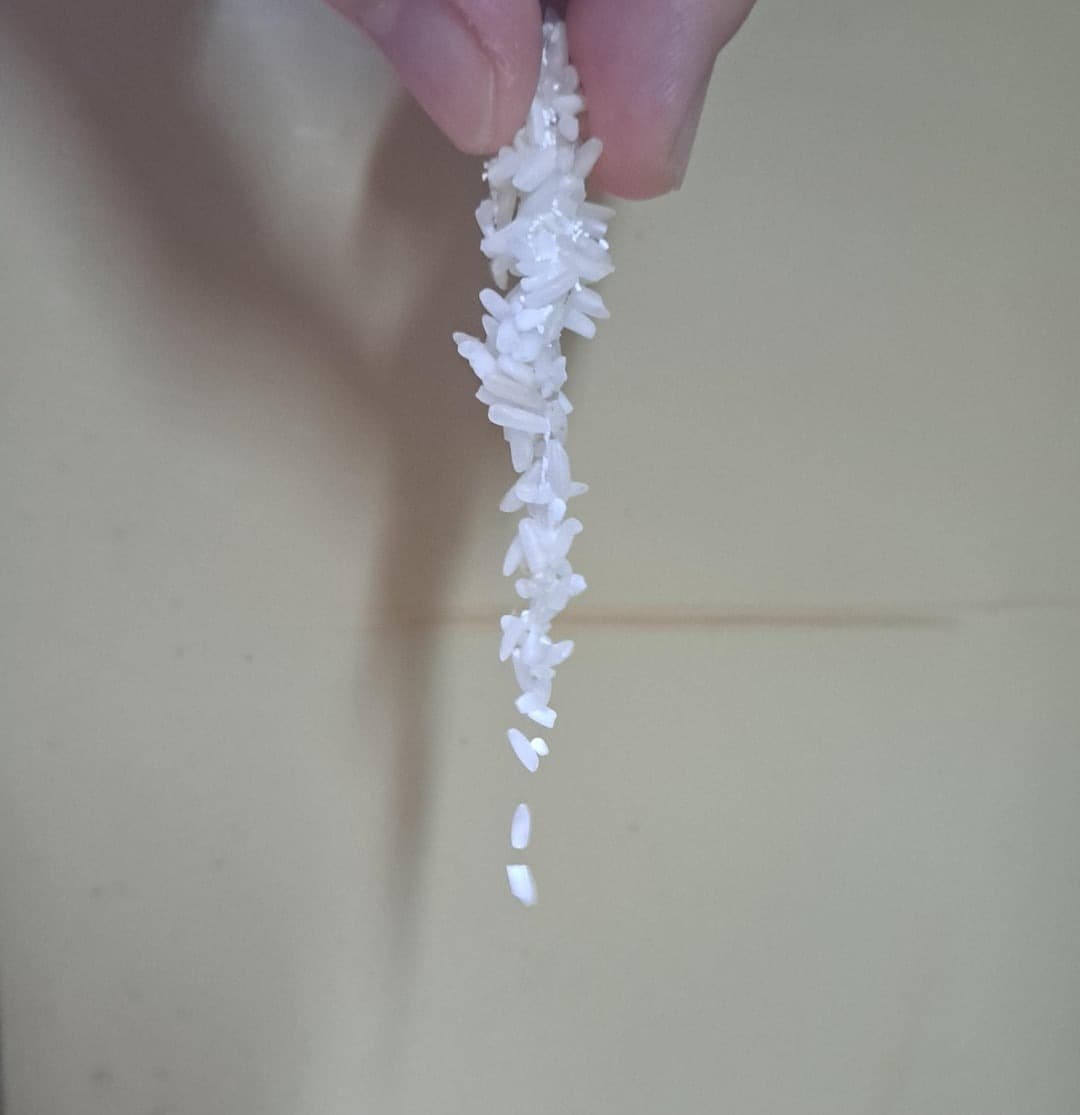
Many people don’t realise what these clusters actually are or how they form. Some assume it’s just moisture or age, but the truth is far more unsettling. Is clumped rice still safe to eat? Let’s find out what’s really going on.

Is Clumped Rice Safe to Eat? If your rice is sticking together in clumps or feels oddly textured, it’s best not to eat it. Often, such rice tastes bitter. If you must use it, ensure you thoroughly remove all visible clumps and rinse the rice multiple times. Only cook it once you’re confident the grains are clean and free of any signs of infestation. Otherwise, once it’s cooked, the off taste will remain, and you’ll likely end up throwing the entire batch away.
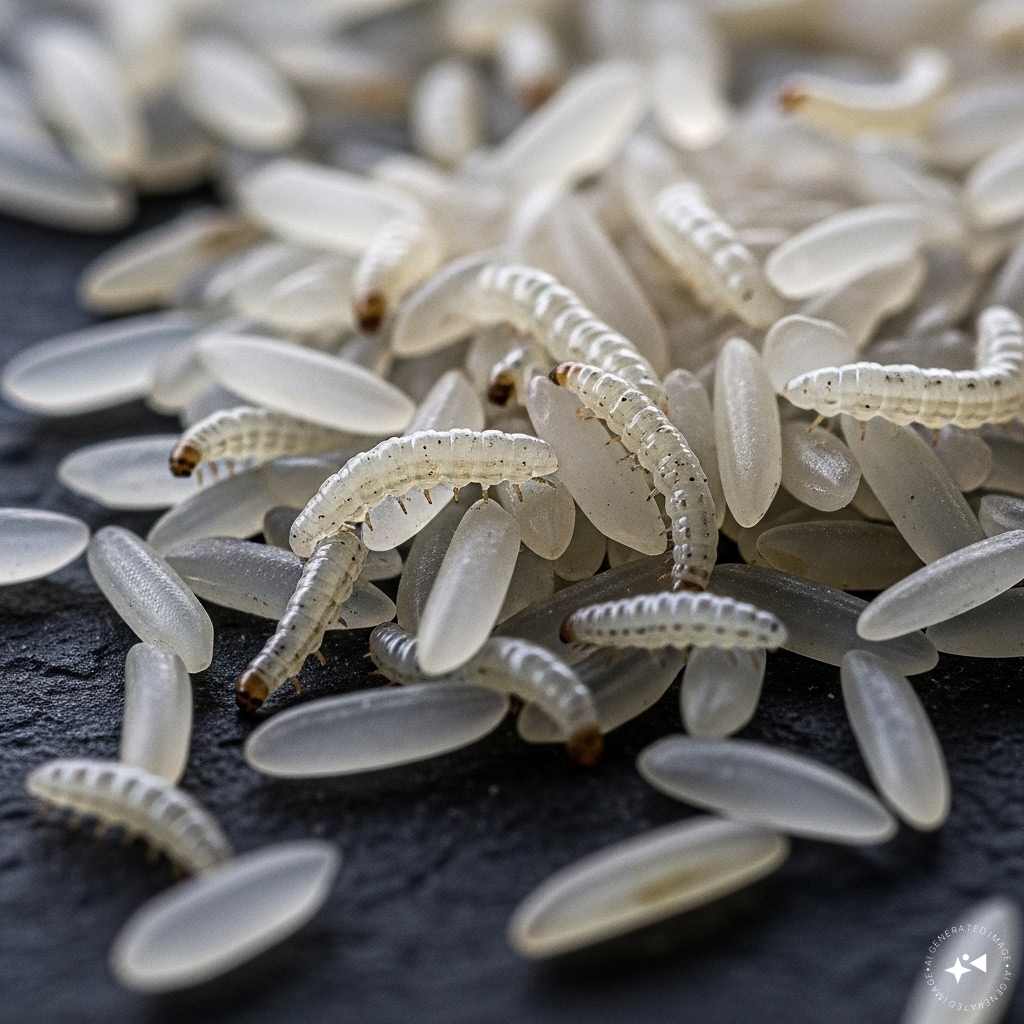
What Causes These Clumps? Most people think of caterpillars as being large and visible. However, there are also tiny ones that are difficult to spot. These small larvae can burrow into grains such as rice, wheat, oats, and similar dry foods. Once inside, they begin to form a nest, releasing a silk-like substance that binds grains together. This creates the clumps you see. Inside these nests, the larvae grow, and after a period of time, they transform, not into butterflies, but into very small moths. (AI Generated)
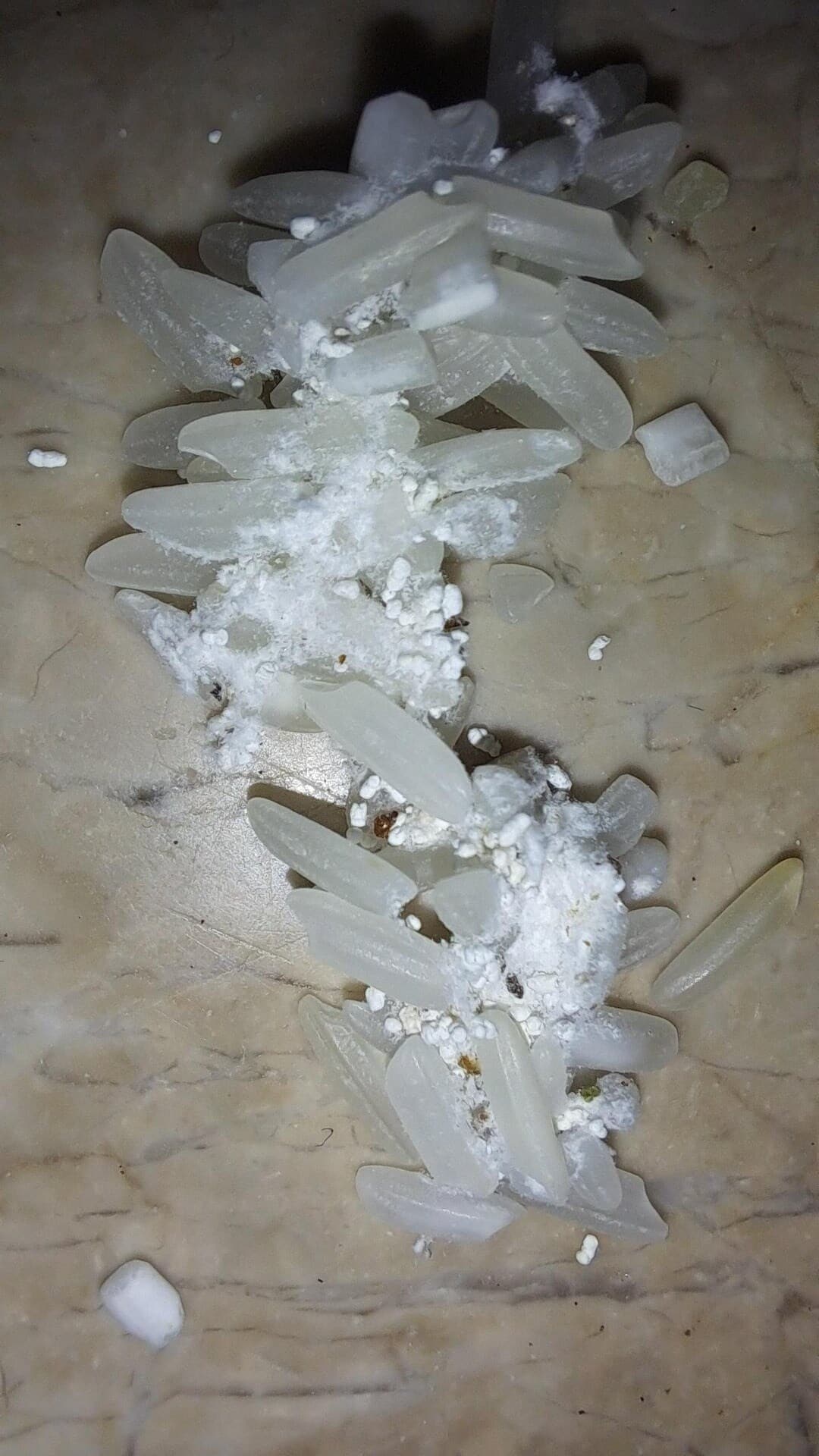
These larvae, eggs, and silken webs contribute to the bitter taste in the rice. The longer the rice is stored, the more these infestations grow and spread. Over time, the entire batch can become contaminated.

Sadly, in some places, such as schools, such rice may simply be washed and served to children. This can be incredibly harmful and may lead to food poisoning. That’s why it’s crucial to inspect rice (and other grains) before cooking and to store them properly.
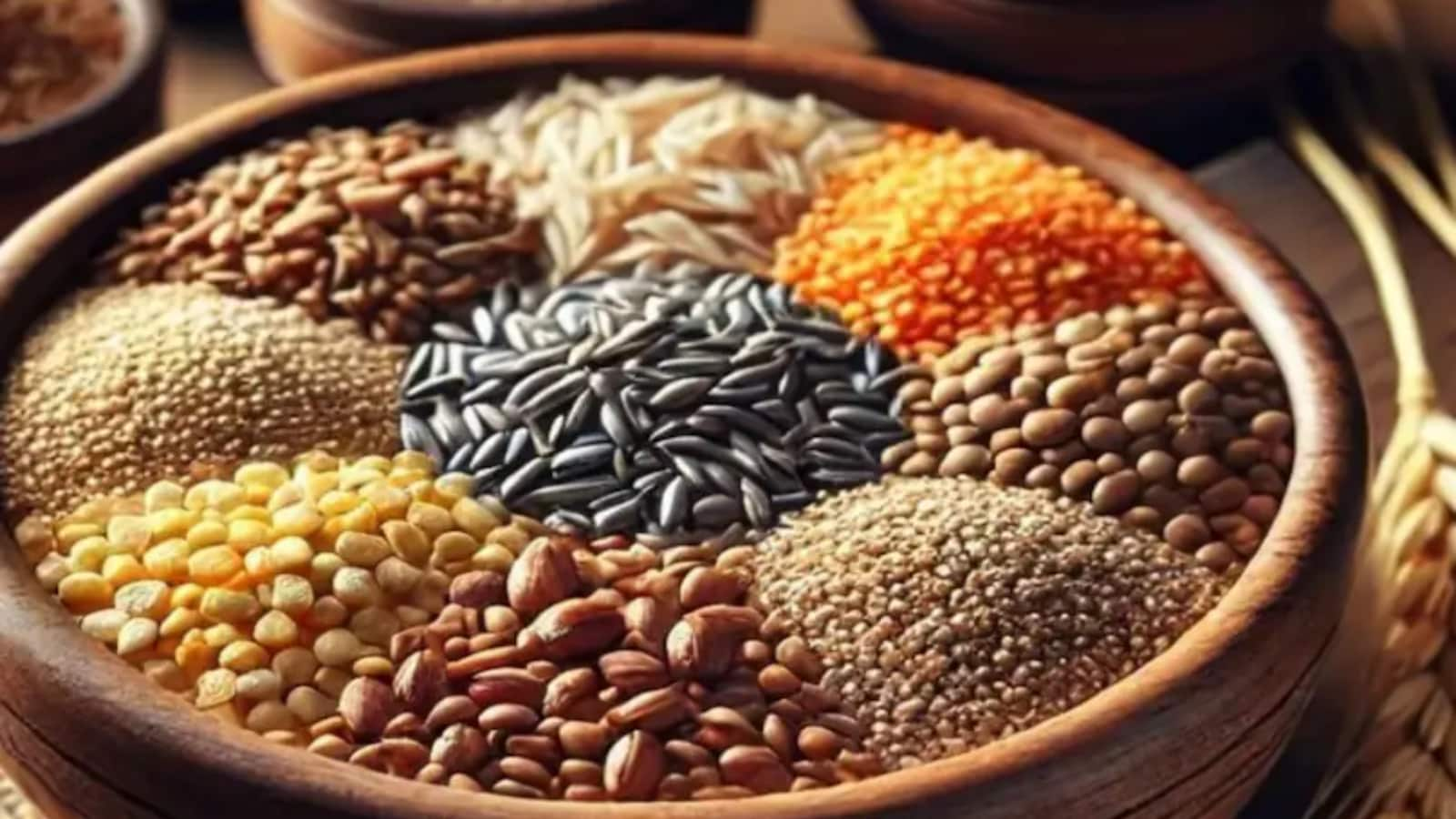
It’s not just rice that’s at risk. Packaged foods like oats and instant oatmeal can also be infested. When buying these products from the supermarket, check the packaging carefully. A small hole in the packet could be a sign that insects have already entered and started nesting. Once inside, they lay eggs, release silk, and spoil the entire contents. (AI Generated)

There was a recent incident where a child asked his mother for a chocolate drink. She opened the chocolate powder tin, mixed some into milk, and noticed that some of the powder looked unusual. Curious, she checked the tin again and discovered a small hole, likely made by a mouse. Through this hole, tiny caterpillars had entered the container, nested inside, and laid eggs. (AI Generated)

Thankfully, she spotted it in time and threw away the powder. Had she served it, it could have caused stomach issues for the child. This is a stark reminder of how careful we must be when storing food at home. (AI Generated)
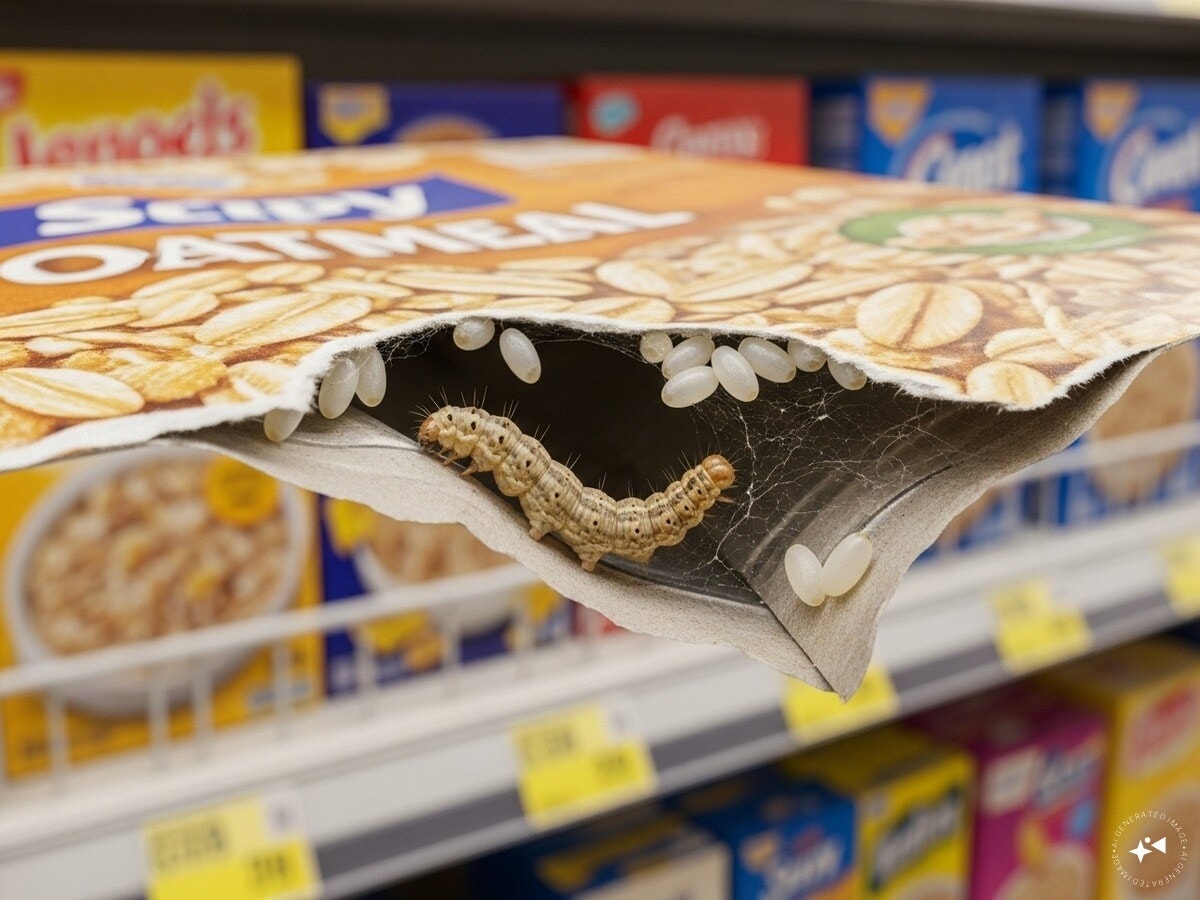
It’s not just chocolate powder, other pantry staples like pulses, salt, and spices can also attract insects. These tiny pests find their way into almost everything if not stored properly. (AI Generated)

It’s important to: Regularly check your pantry and discard expired or stale goods. Ensure all containers are tightly sealed and free from damage. revent rodents from creating holes or entry points in storage areas. Maintain kitchen cleanliness throughout. Avoid keeping grain jars empty – store them in the north-west. Store salt and spices in the south-west to bring stability to household energy.

What to Watch Out for When Shopping? Firstly, supermarkets often sell ‘buy one, get one free’ (1+1) food packets, which may seem like a bargain. But many of these items are close to their expiration dates. If you don’t use them immediately, they may spoil quickly, especially if they’ve been stored for long periods in the shop itself.

Always check the manufacturing and expiry dates, inspect the packaging for damage, and be wary of unusually low prices on bulk items. Taking a few extra seconds at the shop can help you avoid food waste, and more importantly, protect your health.

Food safety starts at home. Whether it’s rice, oats, chocolate powder, or spices, storing food correctly and staying vigilant while shopping can prevent unwanted surprises, and serious health issues. Keep your kitchen clean, rotate stock regularly, and when in doubt, throw it out.
Go to Source
Author: News18

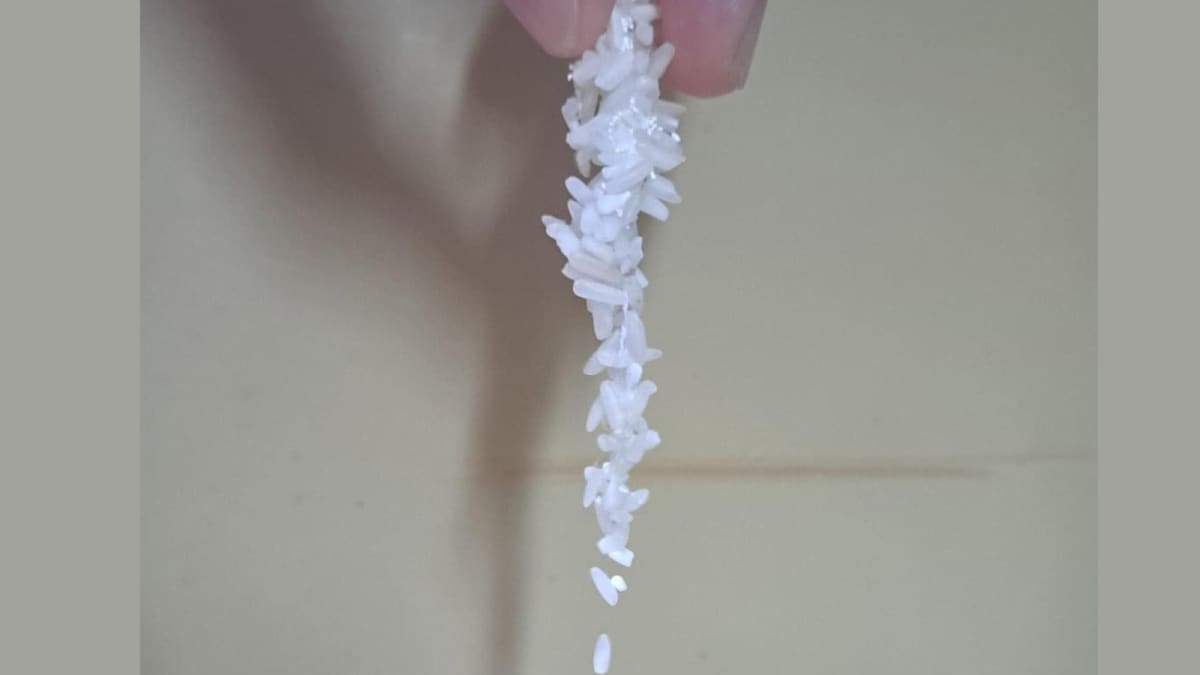

)